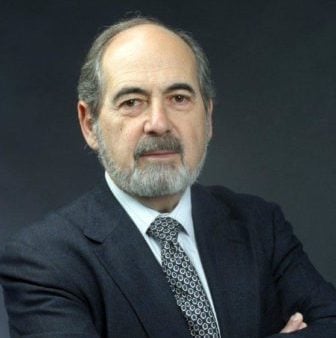Author: Karen Everhart
Karen Everhart is managing editor and interim executive director of Current, supervising the editorial and business teams, freelance contributors, designers and student interns. As a reporter and senior editor over two decades, she covered every major beat — public TV, CPB, public radio and the evolution of public media's digital service strategies. After her promotion to managing editor in 2012, she helped lead Current's transition to digital-first publishing. Karen was appointed interim E.D. in April 2025.
Ex-NBC news exec will manage WNET
Neal Shapiro, president of NBC News until 16 months ago, will succeed William Baker as president and c.e.o. of New York’s WNET. ...January 22, 2007Once the feisty advocate for indies, AIVF fades to black
The Association of Independent Video and Filmmakers, a 30-year-old group that coordinated activism and provided networking and training for independent filmmakers, shuttered ...July 31, 2006PBS Kids Go! channel: plan is no-go for now
After fewer than half of PBS stations made commitments to carry a proposed multicast channel for school-aged children, the network pulled back ...July 17, 2006Spirits rise as PBS acts: science, kids, on demand
During a PBS Showcase meeting distinguished by a sense of optimism that public TV had emerged stronger after last year’s political troubles, ...May 30, 2006Moyers commends optimism: Get up and try to be more
When Bill Moyers took the podium May 17 [2006] at PBS Showcase in Orlando, Fla., he stepped up to accept PBS’s “Be ...May 30, 2006The wreckage: Journal quits with parting shots at public TV
The same week former CPB Chairman Kenneth Tomlinson resigned from the CPB Board, public TV stations received a low-key announcement that the Wall ...November 21, 2005Getler to measure PBS journalism against its goals
For the first time PBS has hired a journalist to critique the programs it distributes.September 19, 2005Public TV lobbies and bids to keep grants for kids’ television
Public TV has to move on two fronts to protect Ready to Learn, the Department of Education grant program that supports several ...June 27, 2005Stay tuned for balance debates
After a week as target of dark accusations and suspicions, Ken Tomlinson was weary. “We’ve all said what we had to say,” ...By Karen Everhart and Jeremy EgnerMay 16, 2005A cuddly sloth is set for science series stardom
It’s a Big, Big World, a preschool science series from Mitchell Kriegman, promises to be the next big thing for PBS Kids. The series, ...May 2, 2005PBS, producers, Comcast wed to create digital kids’ channel
Sesame Workshop President Gary Knell describes plans to create a PBS-branded digital cable service for preschoolers as a “renewed marriage vow” for ...November 1, 2004Target: sitters who could be teachers
KCET in Los Angeles unveiled a multimillion-dollar initiative to help prepare kids for kindergarten by training the adults who care for them. ...August 23, 2004PBS again taps viewer curiosity about old things
A spin-off of Antiques Roadshow, PBS’s most popular series, will visit memorable guests from past installments and guide viewers through the ins and outs ...July 26, 2004CPB’s TV Future Fund was illegal, GAO finds
A long-anticipated report on public television by the General Accounting Office, released May 21, advises Congress that CPB illegally diverted money intended for stations ...By Karen Everhart and Jeremy EgnerMay 24, 2004As cume slips, duo aims to keep PBS ‘relevant’
For the past four years under PBS President Pat Mitchell, the network has had two chief program executives: at headquarters in Alexandria, ...By Karen Everhart and Steve Behrens, Former EditorApril 26, 2004



